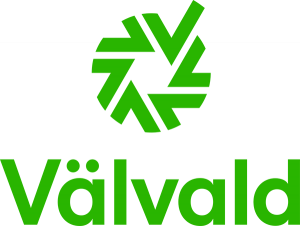
Attachments

test
Apoteken vill se ansvarsfullt producerade läkemedel. Därför har apoteksbranschen tagit fram krav på ansvarsfull tillverkning för receptfria läkemedel. Välvald är en logga på apotekens hyllkant som guidar kunderna till de receptfria läkemedel som uppfyller branschens krav på ansvarsfull läkemedelstillverkning.
De flesta läkemedel är fantastiska och hjälper människor att må bra och bli friska varje dag. Samtidigt vet vi tack vare forskning och journalistiskt arbete att stora mängder läkemedelsrester släpps ut vid tillverkning, framför allt i Kina och Indien. Det innebär att vi i Sverige kan bli friska på bekostnad av människor, djur och natur i andra länder. Detta tycker vi från apoteken är problematiskt.
Idag har läkemedelsindustrin inga krav på sig att redovisa var och hur läkemedel är tillverkade. Tvärt om så råder ofta sekretess kring läkemedelsproduktion vilket innebär att varken apoteken eller konsumenterna vet var och hur specifika läkemedel som säljs i Sverige kommer ifrån. Detta vill vi vara med och ändra, därför har vi tagit fram Välvald.
Kriterierna för Välvald har utvecklas kontinuerligt sedan införandet.
För att en produkt ska ingå måste tillverkningen ske med krav på ansvar i leverantörsledet ner till tillverkning av aktiv läkemedelssubstans. Med ansvarsfull tillverkning avser vi att tillverkning av läkemedel och aktiv substans sker med respekt för mänskliga rättigheter, arbetares rättigheter, miljö samt arbeta mot korruption. Dessutom måste företagen bakom produkterna genomföra och dokumentera en riskanalys. Företaget ska även ha en publikt tillgänglig hållbarhetsrapport enligt etablerad standard som är tredjepartsgranskad och vara medlem läkemedelsindustrins internationella organisation PSCI.
Läs hela kriteriedokumentet för 2023 här.
Välvald syns i anslutning till receptfria läkemedel som uppfyller guidens krav. Den finns på hyllkanten i butik och i anslutning till produkt via e-handel.
Följande företag har Välvaldprodukter 2024: Almirall, Aspen Nordic, Bayer, Evolan, Novo Nordisk, Orifarm Generics, Orion Pharma, Reckitt Benckieser, Stada, och Teva.
För att nå vårt mål – en mer hållbar läkemedelsproduktion – kommer kraven för Välvald att utvecklas och bli allt skarpare med tiden. Kraven för Välvald kommer att gälla fram tills juni 2025 för att med stor sannolikhet uppdateras ytterligare under 2025.
Vill du veta mer?
Hitta svaren på dina frågor i vår Q&A